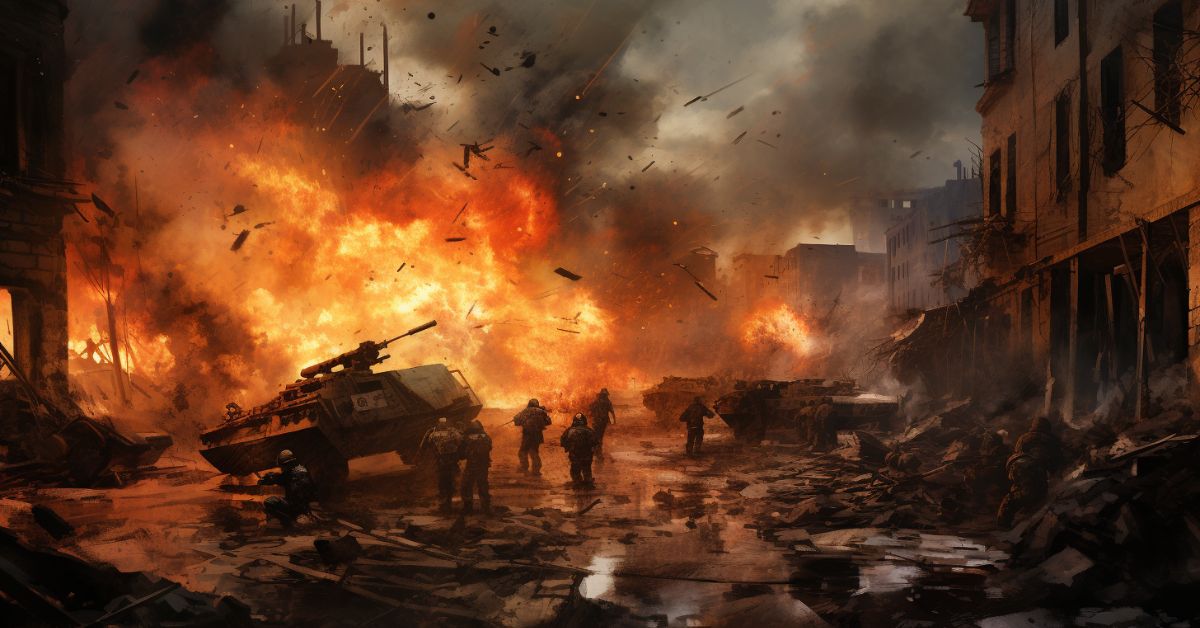In the shadowy corridors of global conflict, where governments and powerful leaders navigate the tumultuous landscape of the new world order, a force is rising. Private Military Companies (PMCs), once a hidden aspect of warfare, are now a booming industry, projected to reach an astonishing $366.8 billion by 2028. But what lies behind this surge? What are the implications for international law, human rights, and the very nature of war itself?
The Wagner Group from Russia and the US-based Constellis-ACADEMI (formerly known as Blackwater) are two names that have recently dominated headlines. Their involvement in the Russia-Ukraine conflict and operations in Afghanistan and post-Saddam Iraq have thrust PMCs into the spotlight. Yet, these companies are not a recent phenomenon. They are part of a long and complex history that intertwines profit, power, and politics.
The world of PMCs operates much like a dark web, conducting business in secrecy and driven by the profit motive. A 2022 report by Vantage Market Research estimated the market size of PMCs at $241.7 billion in 2021, attributing the growth to factors such as increasing privatization of security, rising demand in unstable regions, and technological advances.
But the legal framework surrounding PMCs is murky. Unlike traditional armies, PMCs operate in a legal grey area, often subject to the laws of the country in which they are operating, but also capable of circumventing international laws and agreements. This complexity raises serious questions about accountability, especially when PMCs are involved in war crimes or other illegal activities.
The privatization of war is not a modern concept. History is replete with examples of regimes using private armies, from The Ten Thousand in ancient Greece to The White Company in 14th century Italy. Even in the 20th century, the United States assembled a team of fighter pilots called The Flying Tigers to fight alongside Chinese forces during World War II.

Today, the taboo against mercenaries is eroding. As Dr. Sean McFate, Professor of Strategy at Georgetown University, states, “Mercenaries were long considered an honorable, albeit bloody trade, and only the past 200 years stigmatized them.” The resurgence of PMCs is part of a broader shift in the nature of warfare, one that is more complex, more conflict-prone, and more reliant on private forces.
The Wagner Group, notorious for hiring desperate youth from prisons and fighting for Moscow, and Constellis-ACADEMI, the largest PMC in the world, represent two ends of a spectrum that includes both corporate entities and state-affiliated paramilitary organizations. Scandals and controversies have plagued these companies, from involvement in human rights abuses to illegal arms sales and bribery.
The warriors of the PMCs are often lured by higher-than-average military salaries and benefits. The Wagner Group, for example, increased the wages of its fighters from $3,000 to $10,000 during the Ukraine war. But the allure of money is not without risks. The lack of accountability and potential for PMCs to go rogue raises serious concerns about their impact on global stability.
Experts are divided on the role of PMCs. Some see them as a necessary part of modern warfare, providing security and stability in unstable regions. Others warn of the potential risks and challenges, including the circumvention of international law and human rights norms.
In an extended interview with RAND’s Molly Dunnigan, she sheds light on the regions with maximum engagements with PMCs, the risks of rogue behavior, the reasons …
Join us as we unravel the mysteries of the private armies that are shaping the future of warfare. Discover the forces that drive them, the laws that govern them, and the risks and rewards they present. This report is a must-read for anyone interested in understanding the new reality of modern warfare.
For full report, click here.








